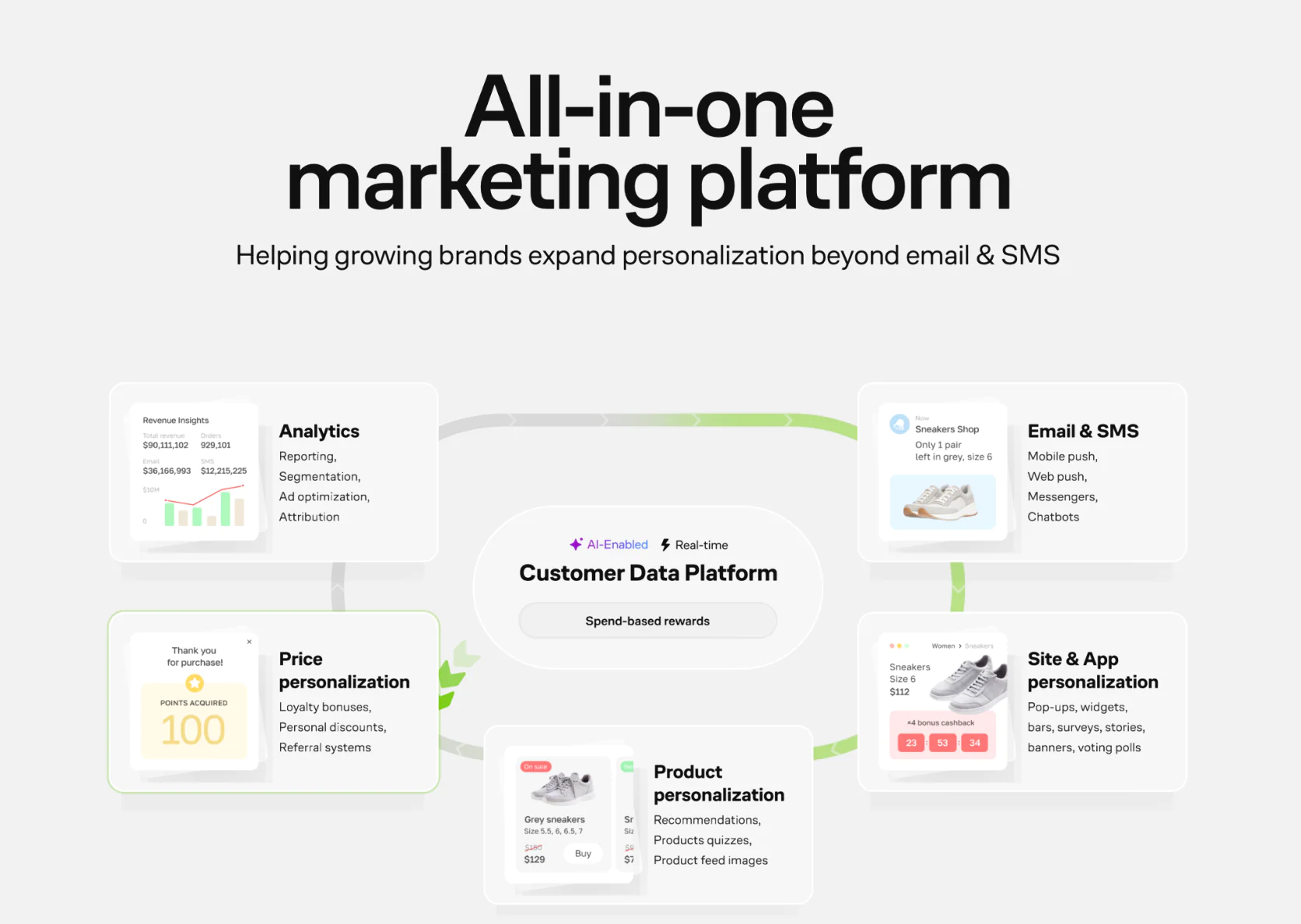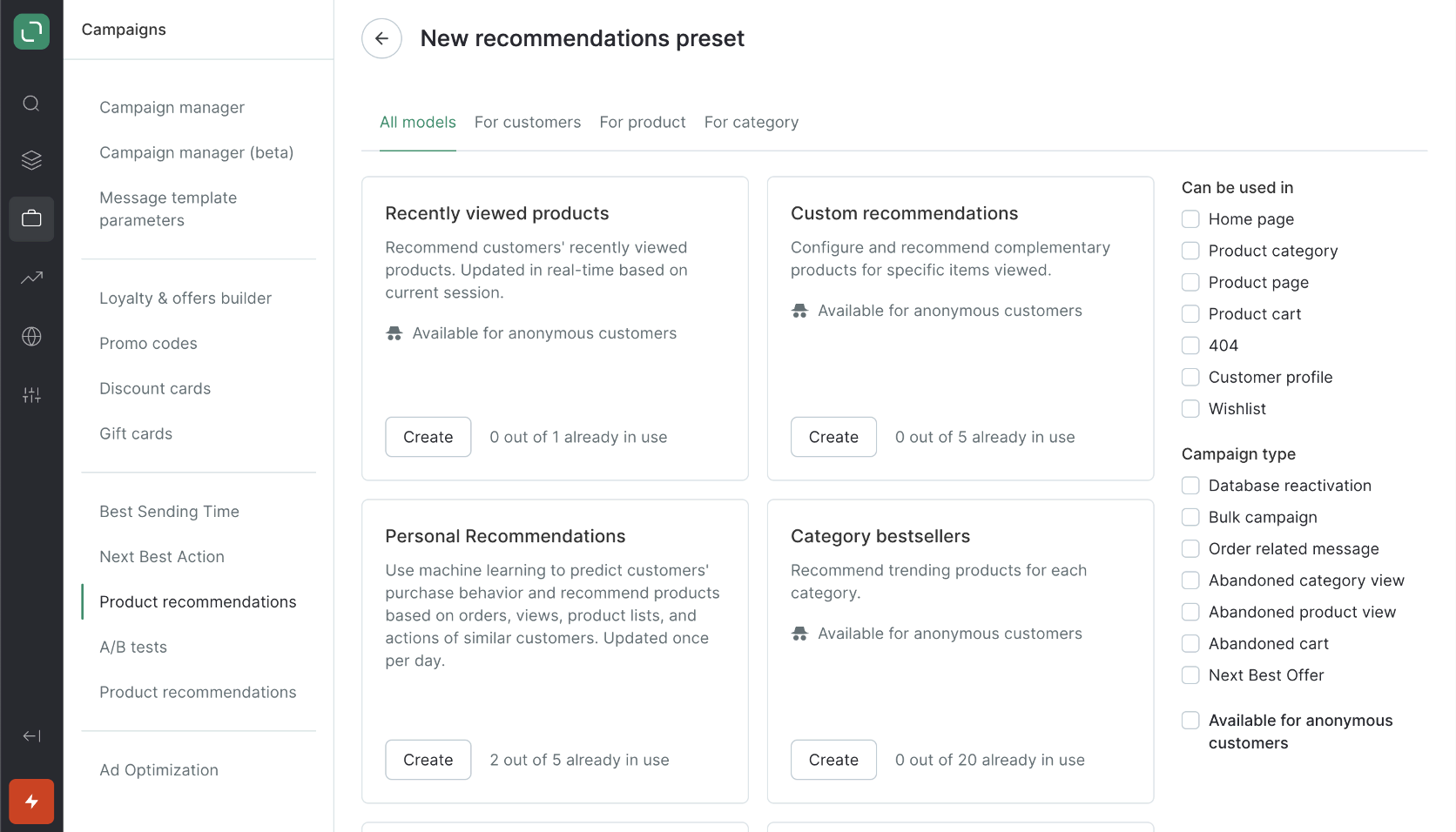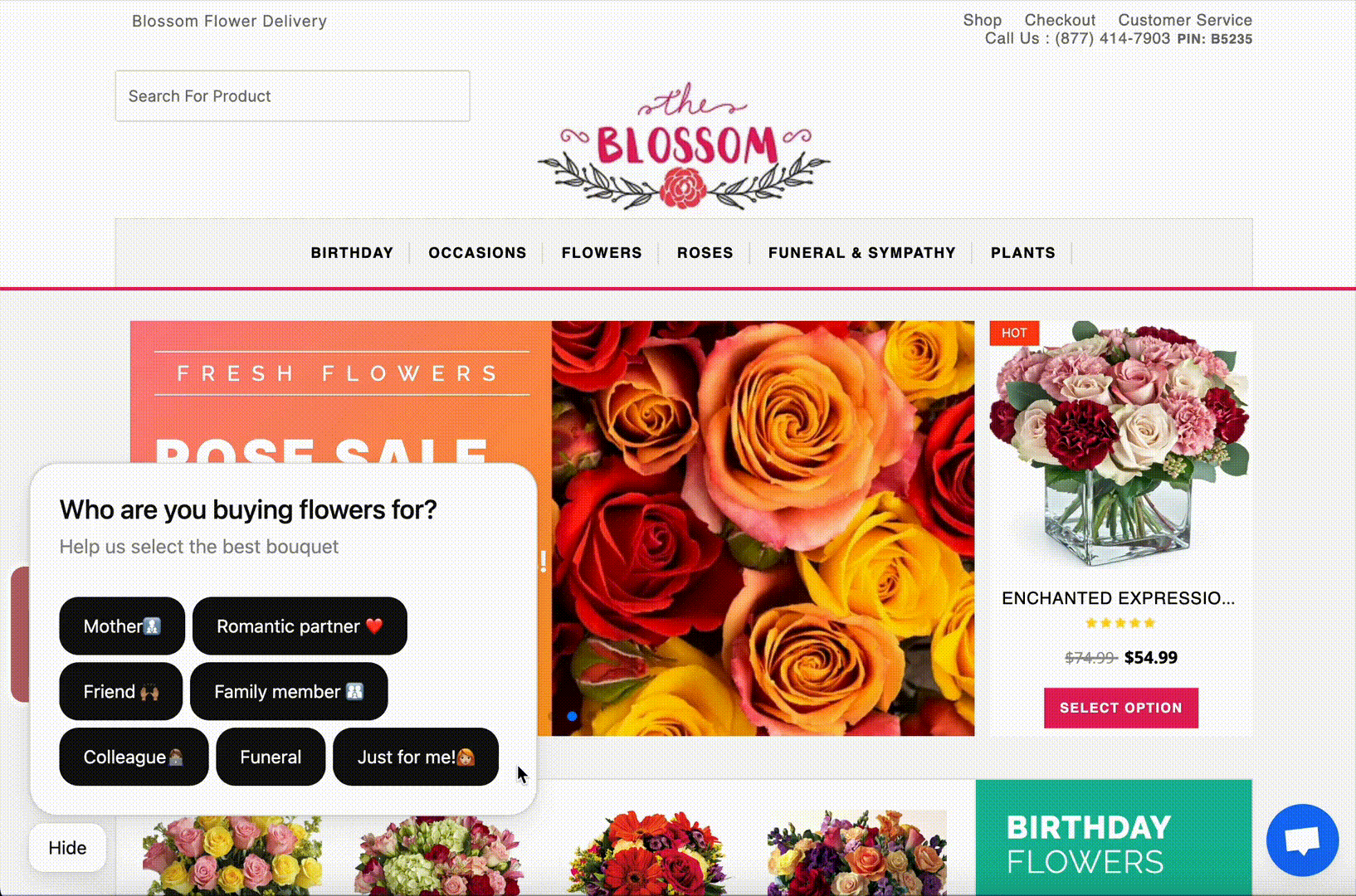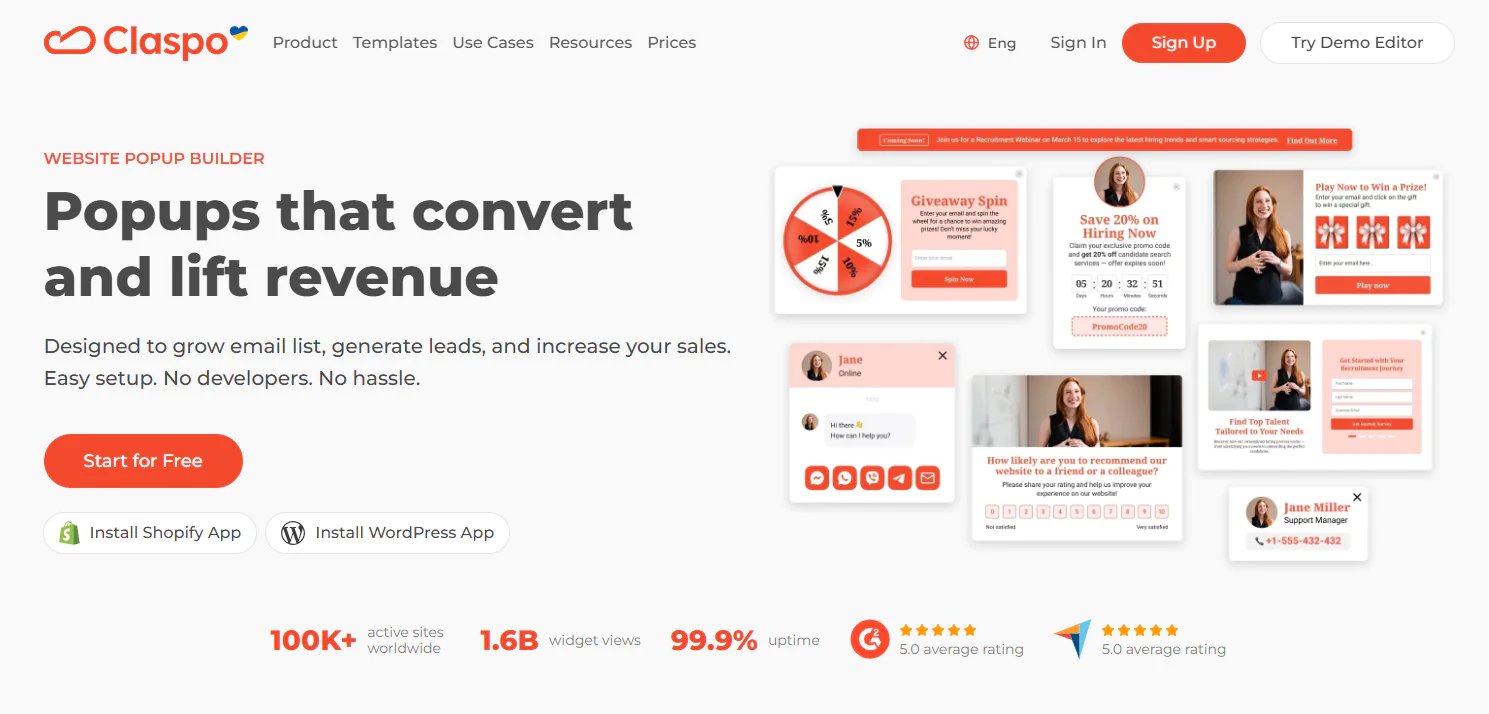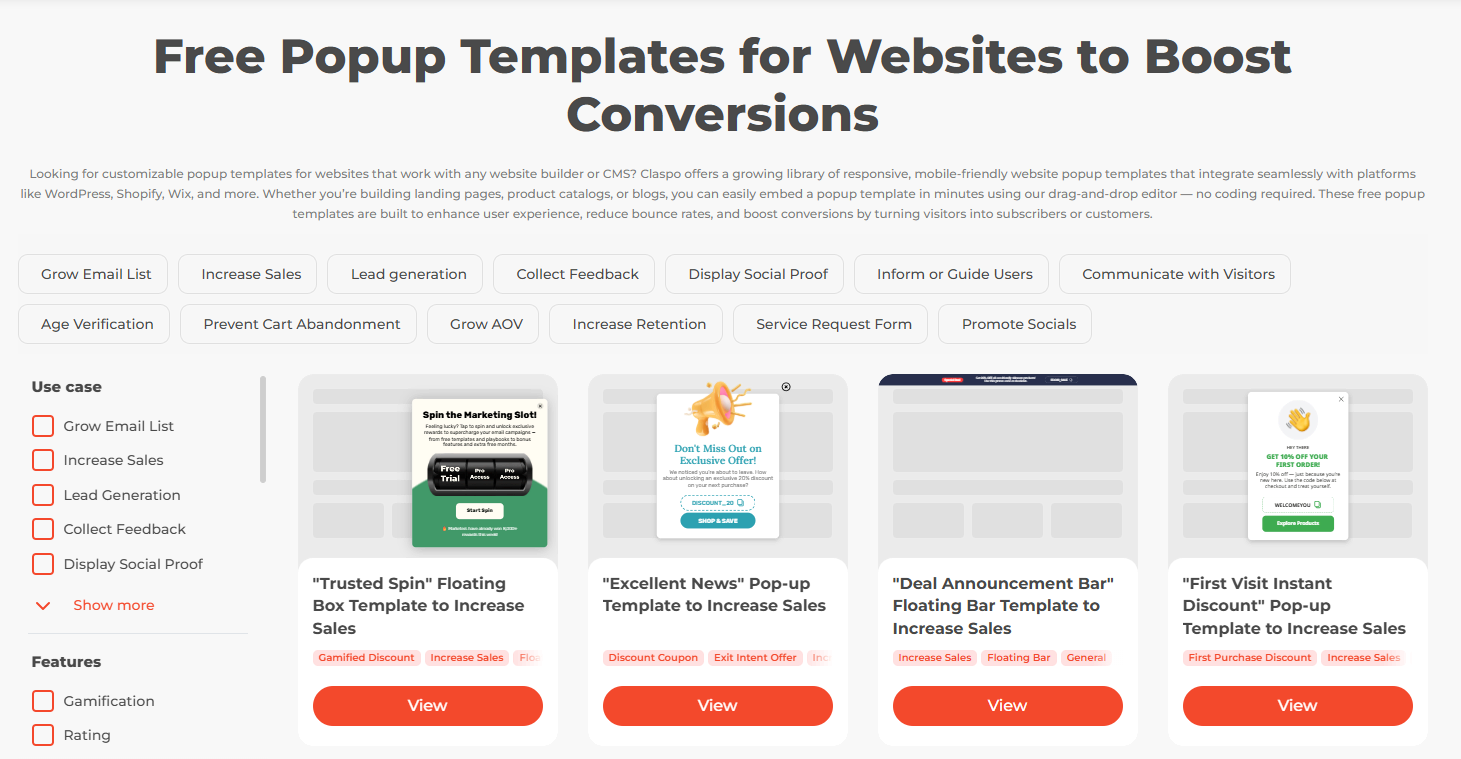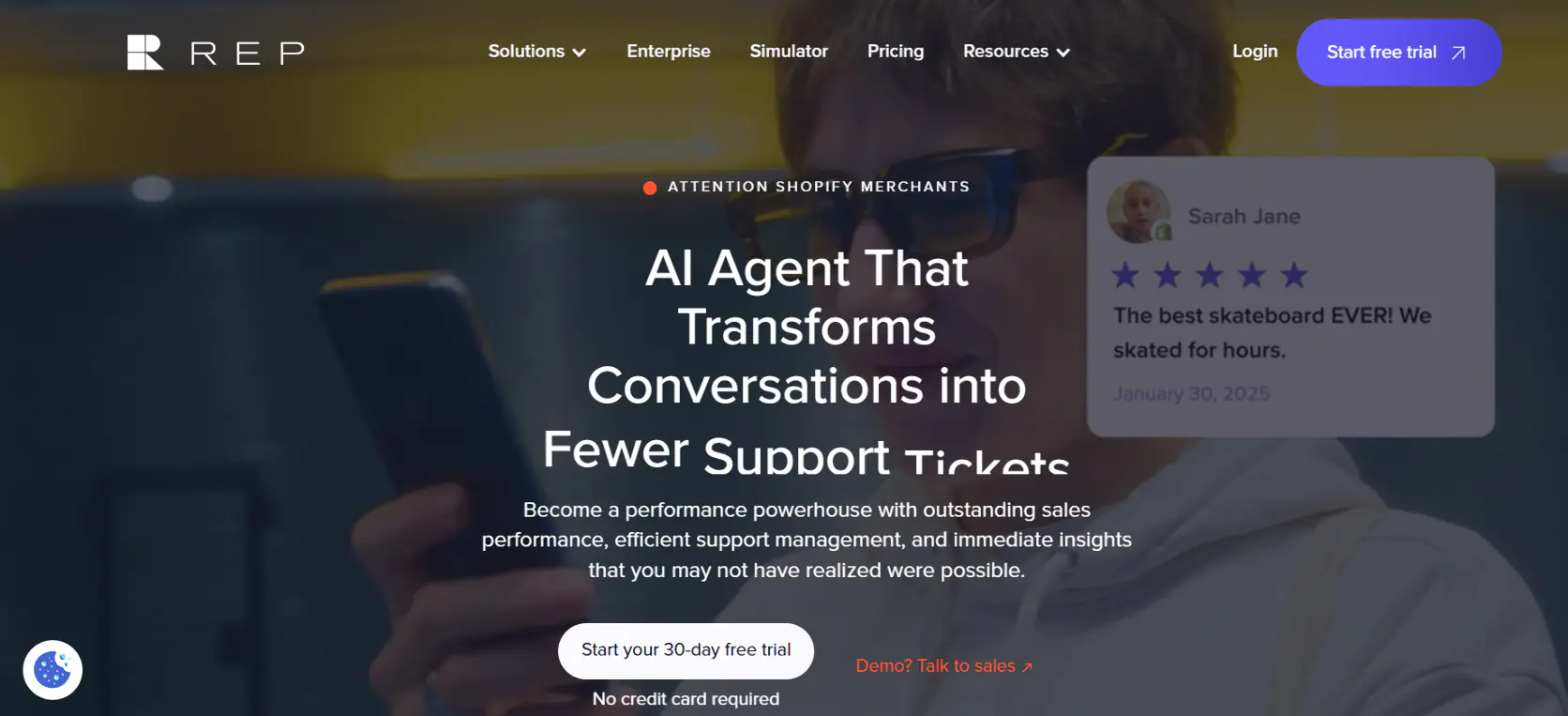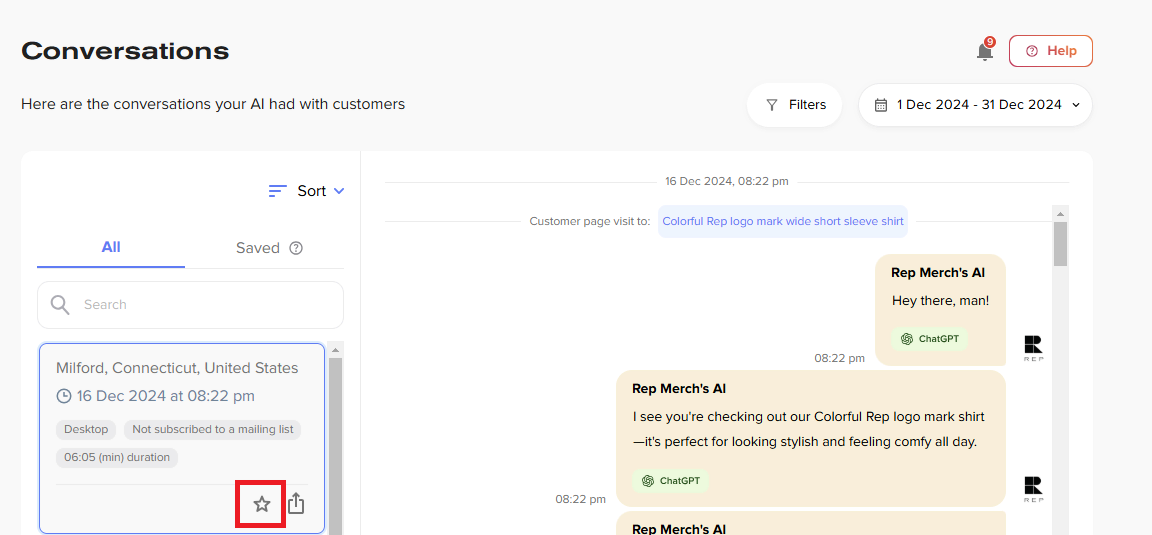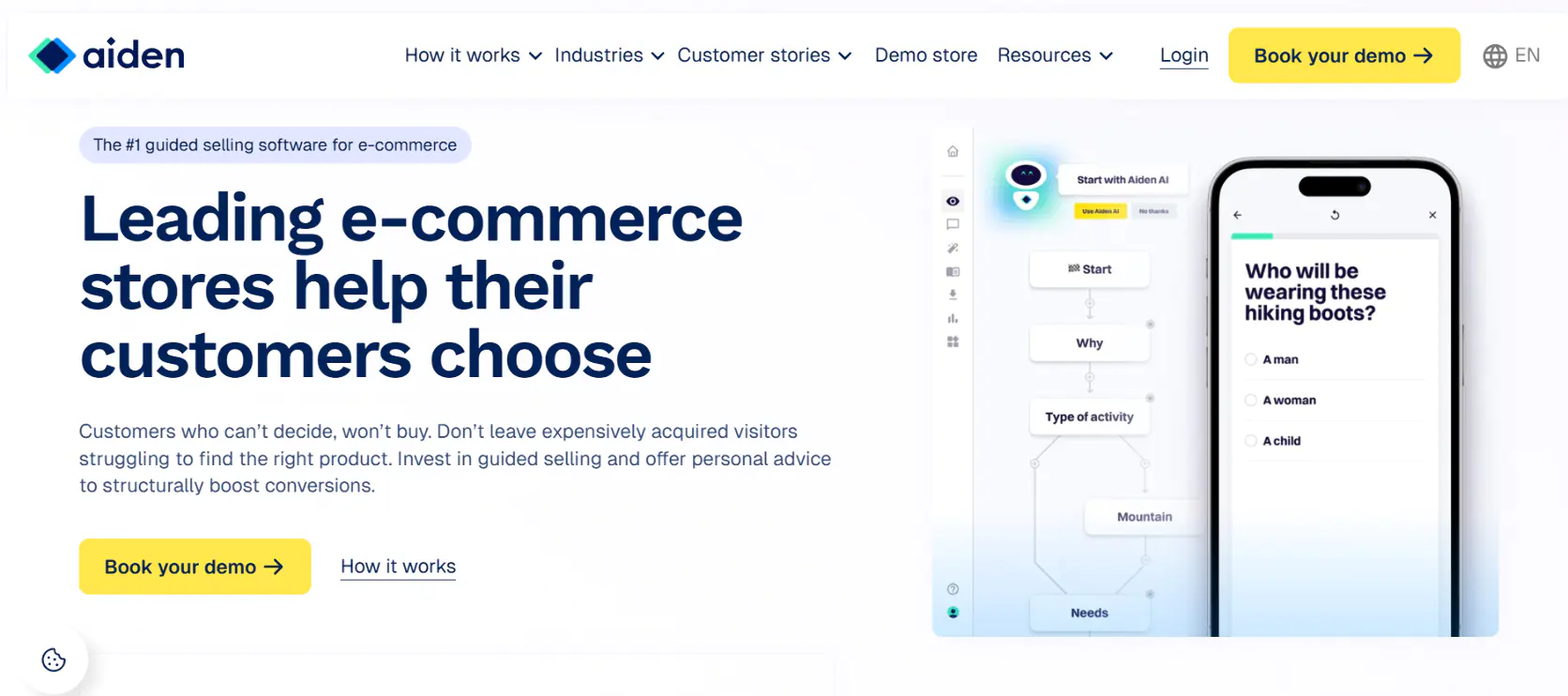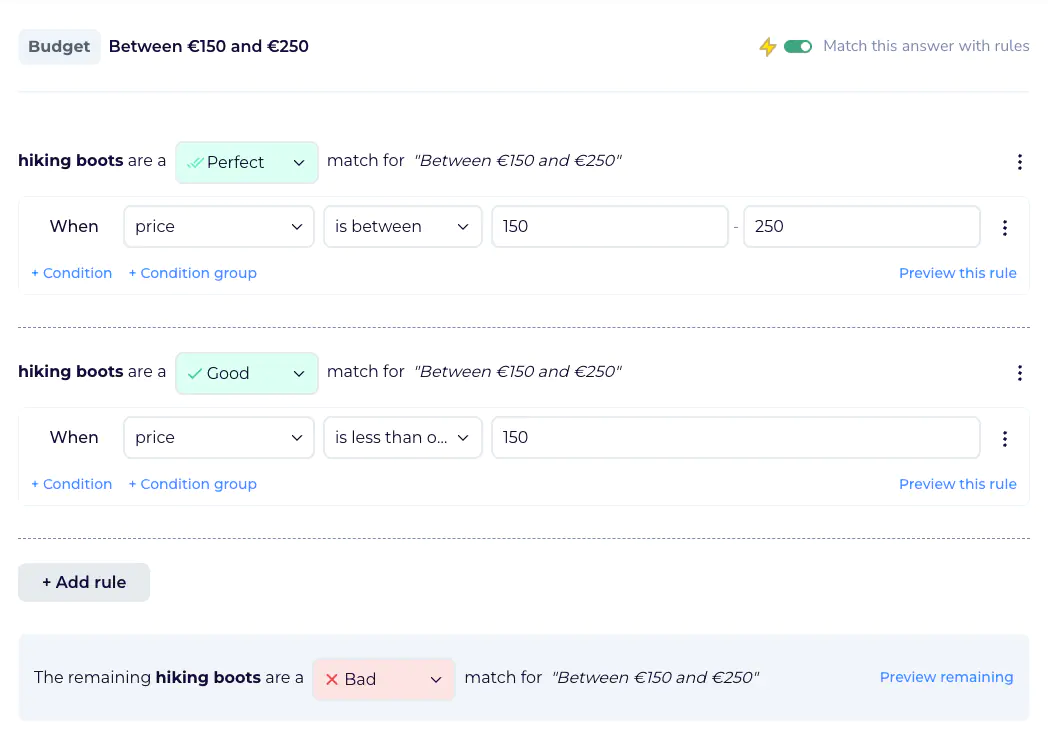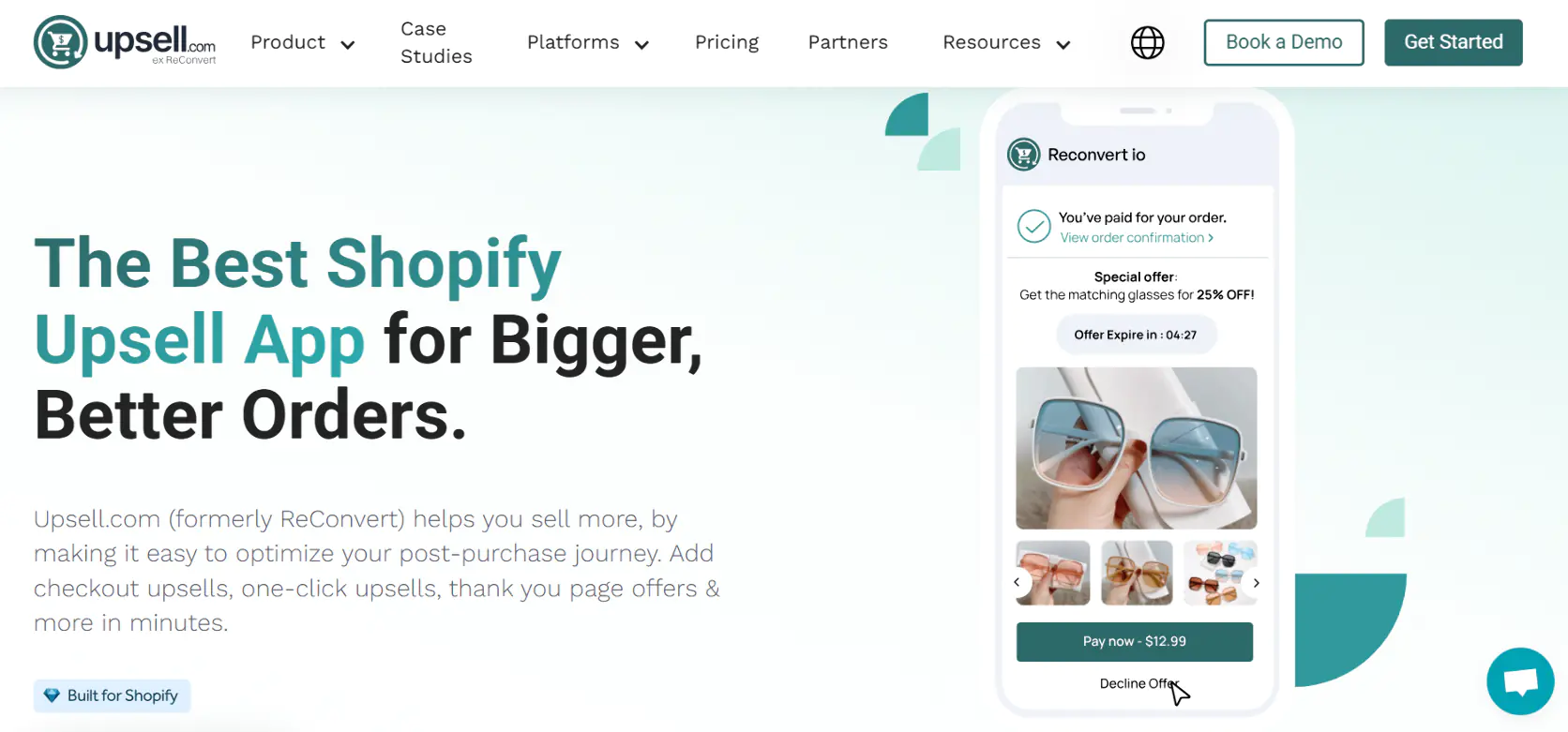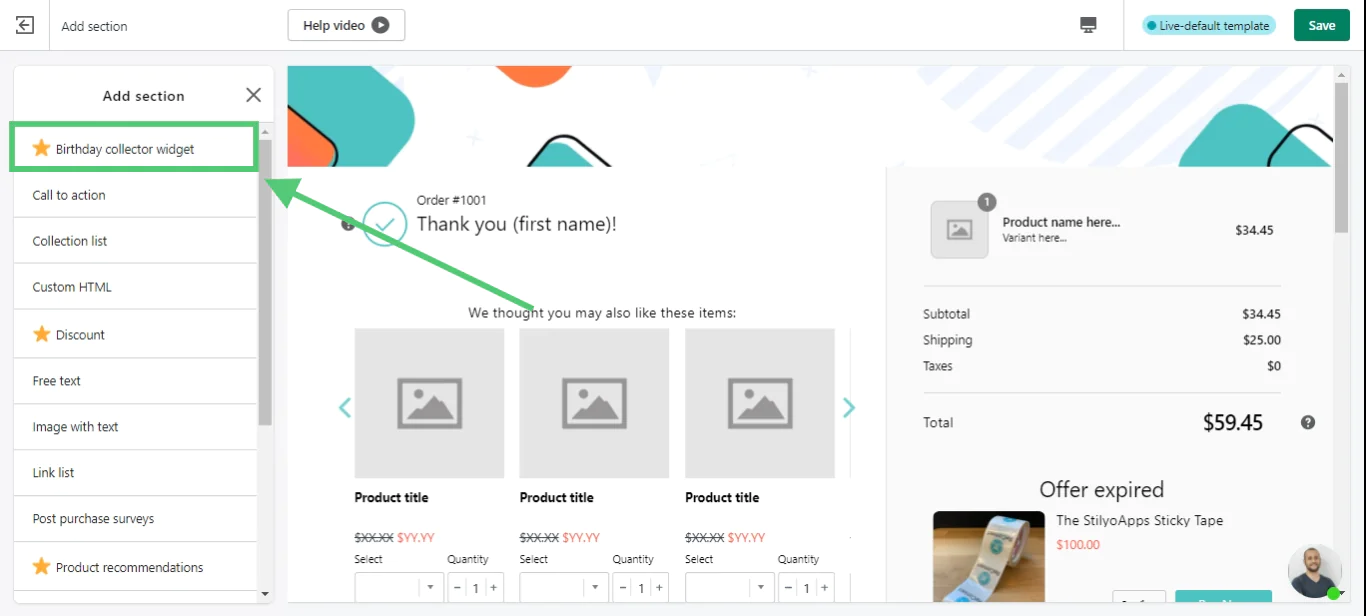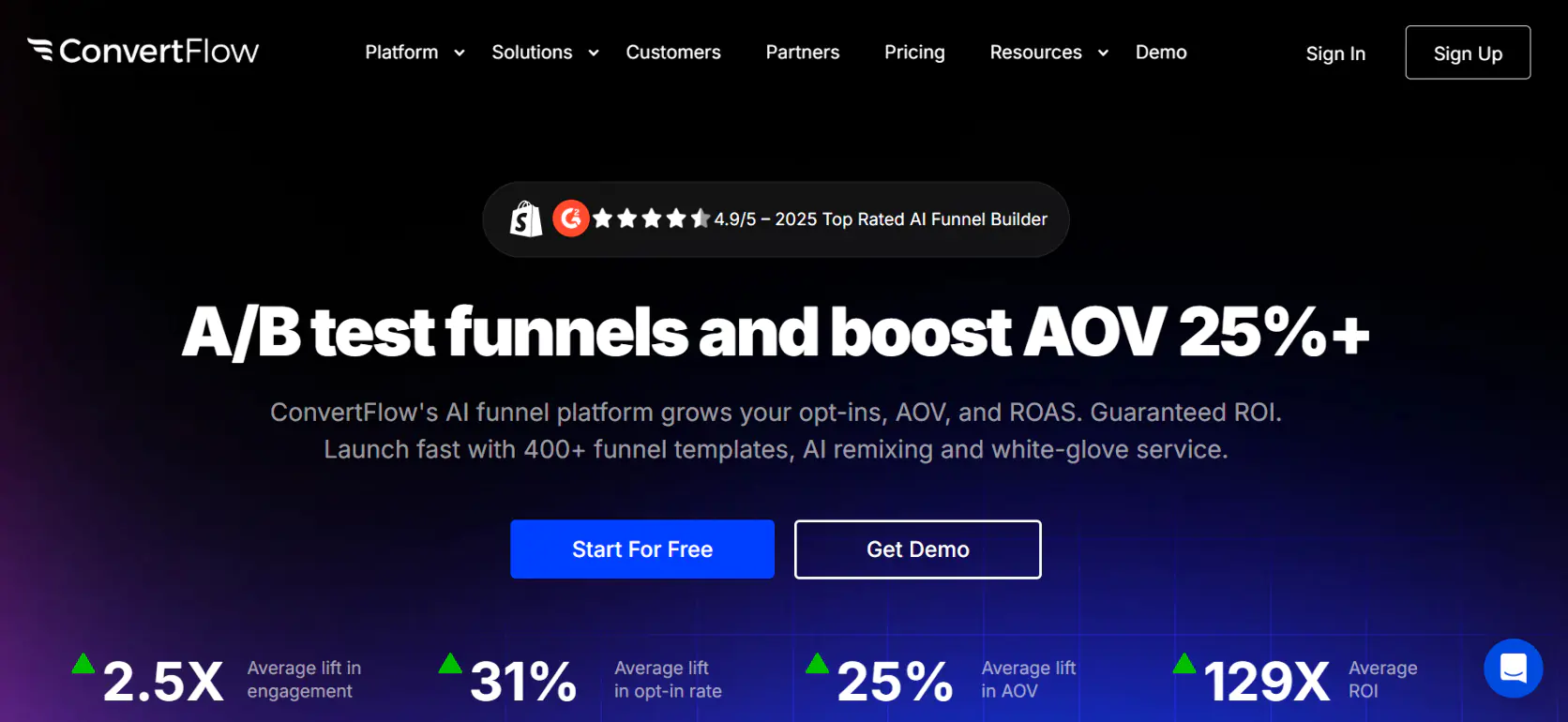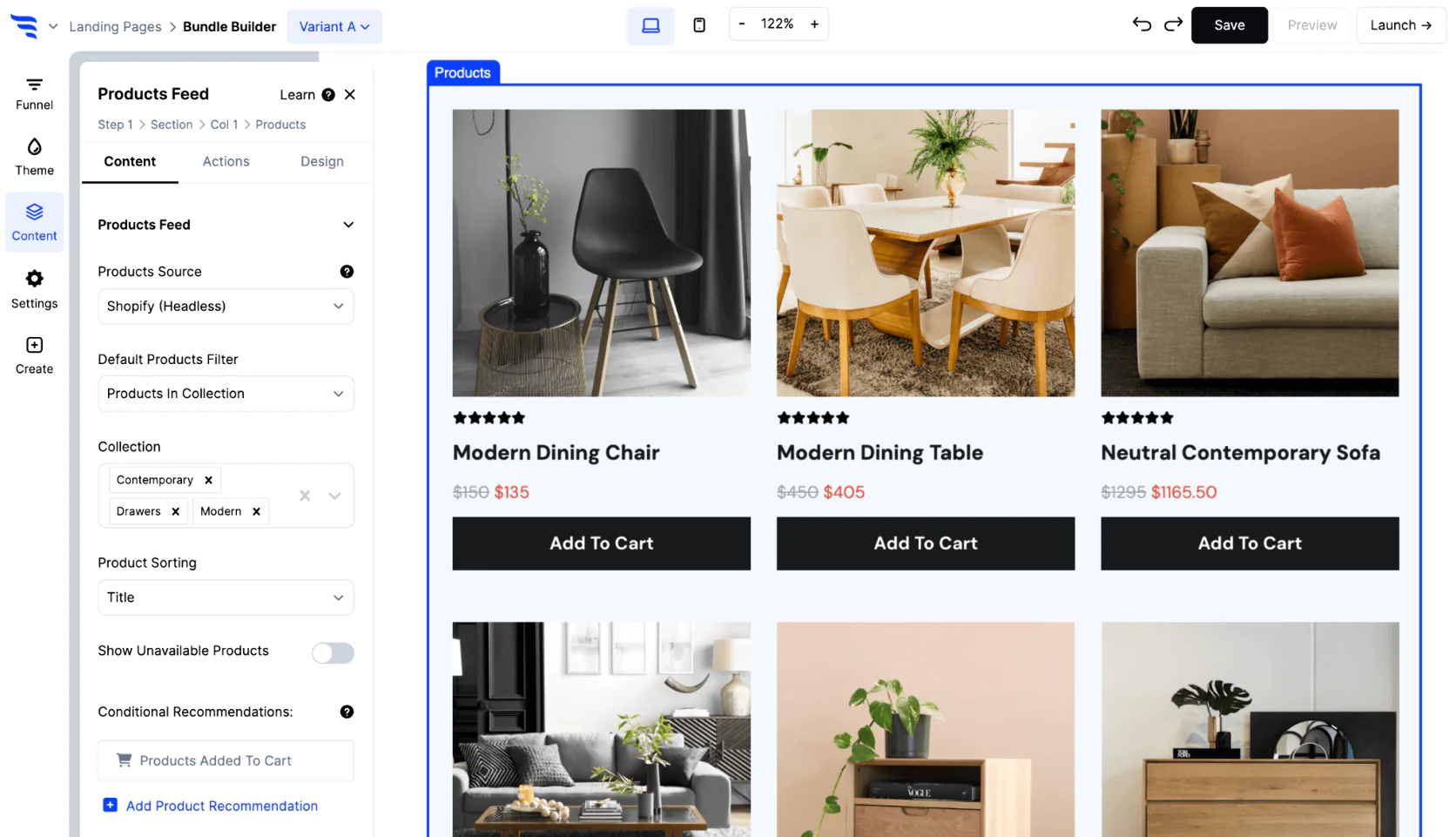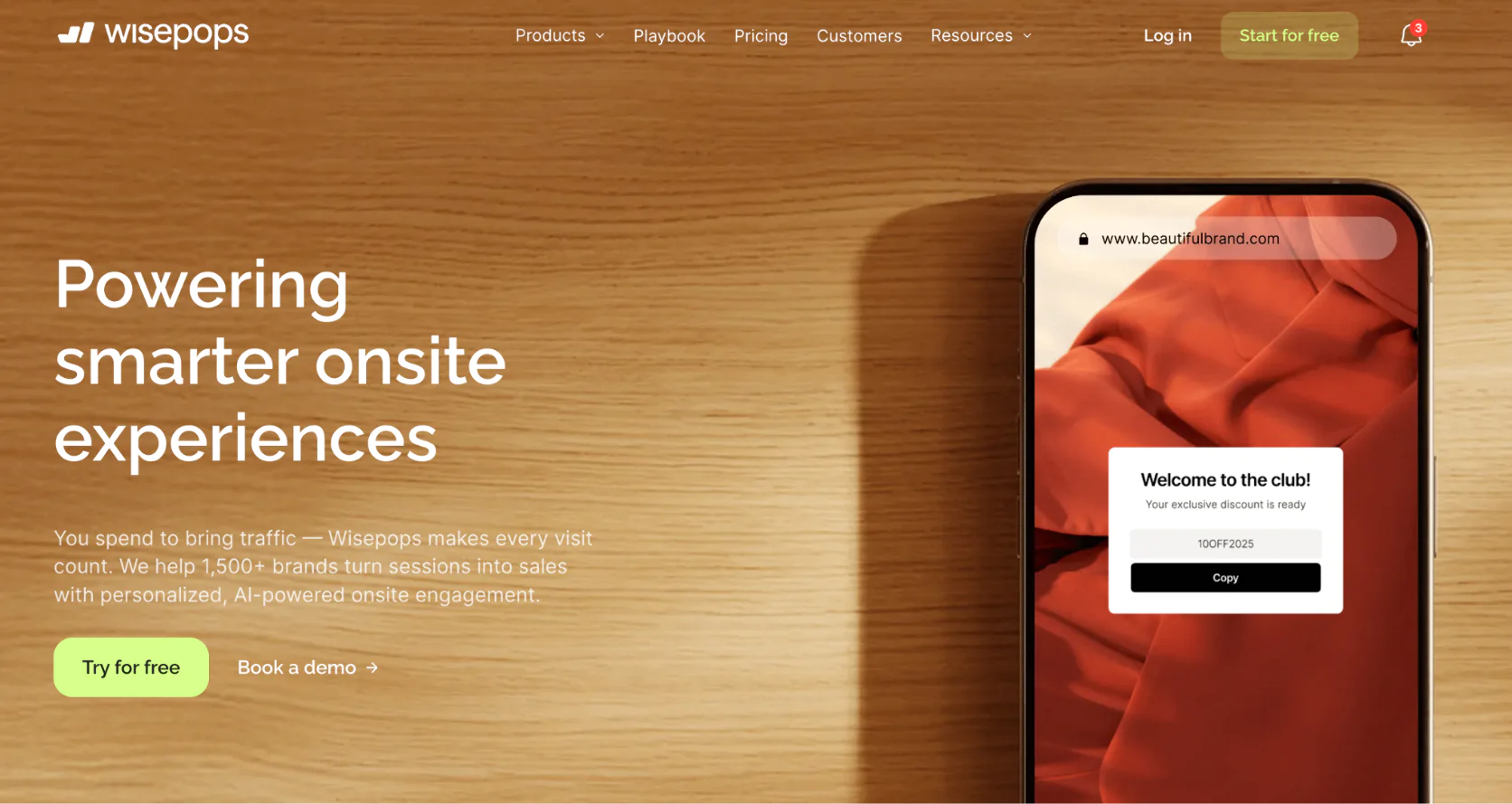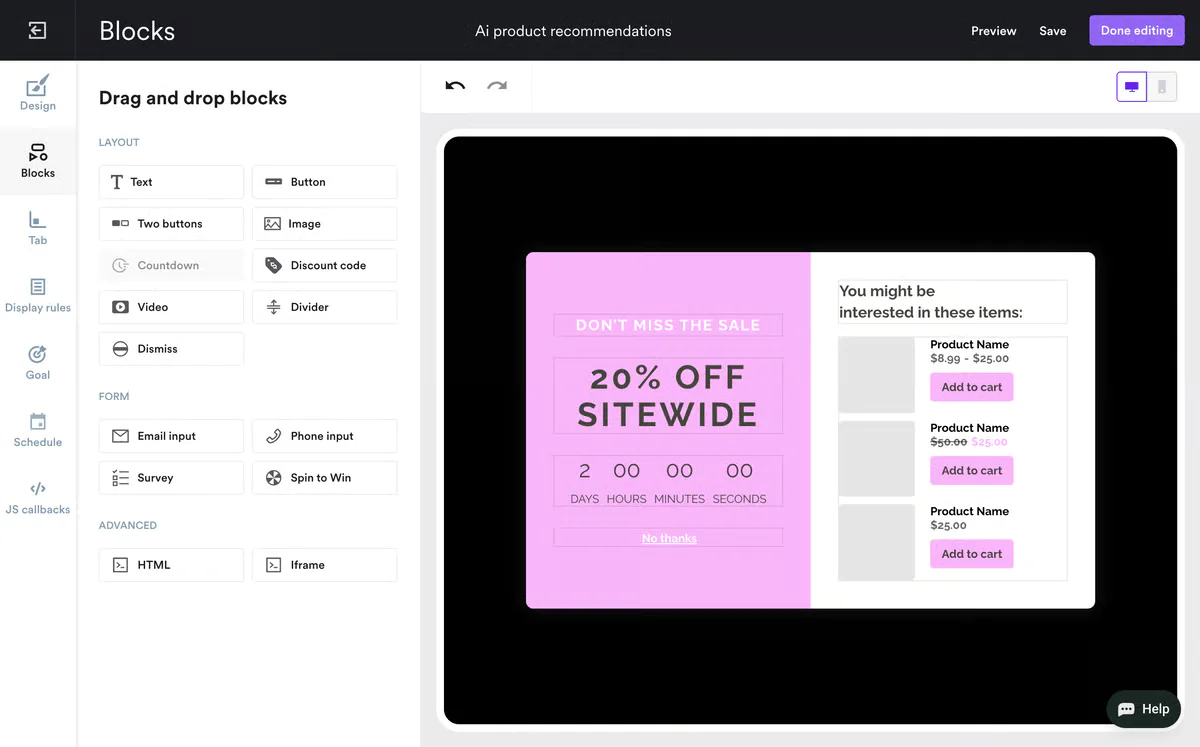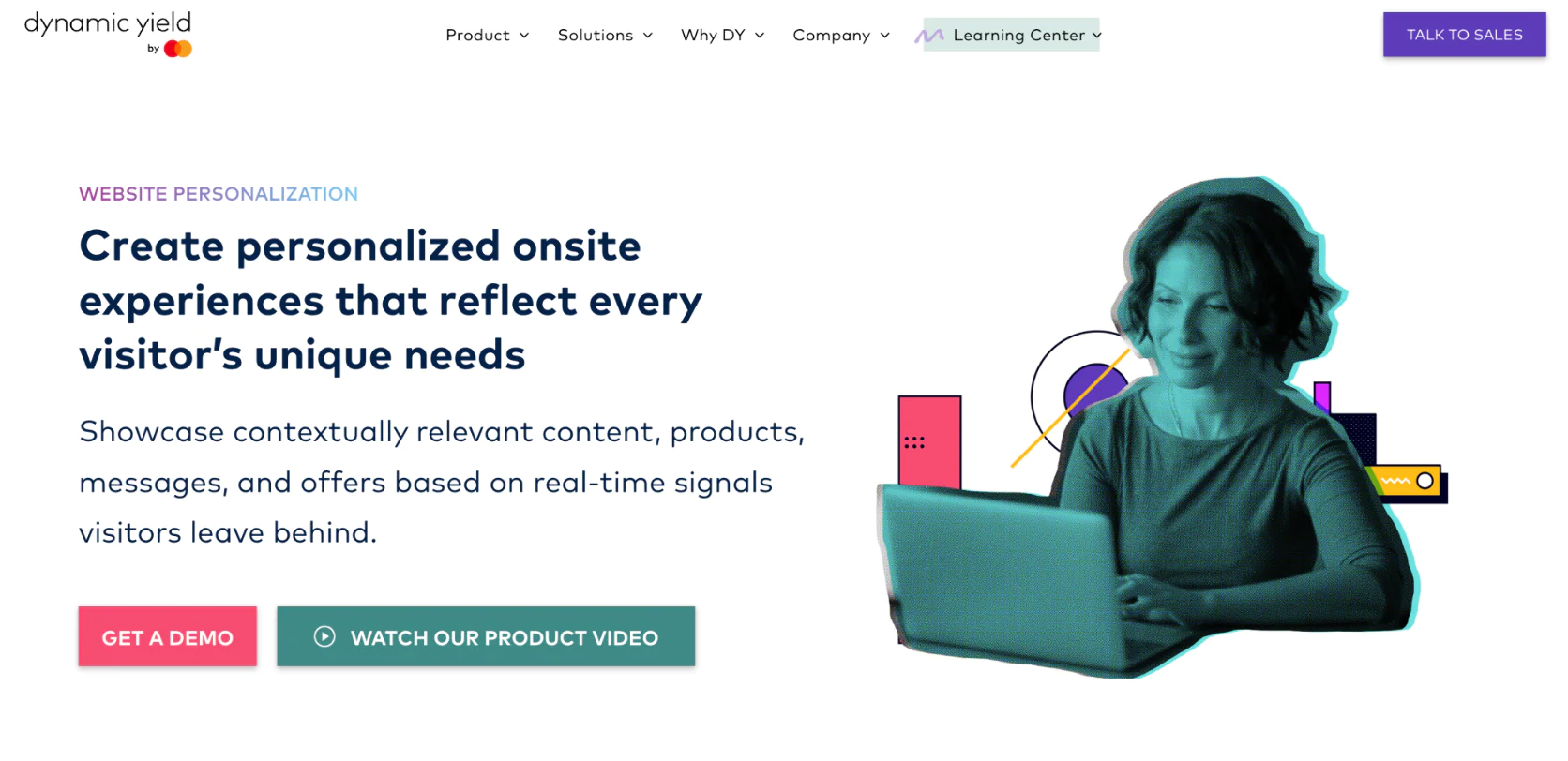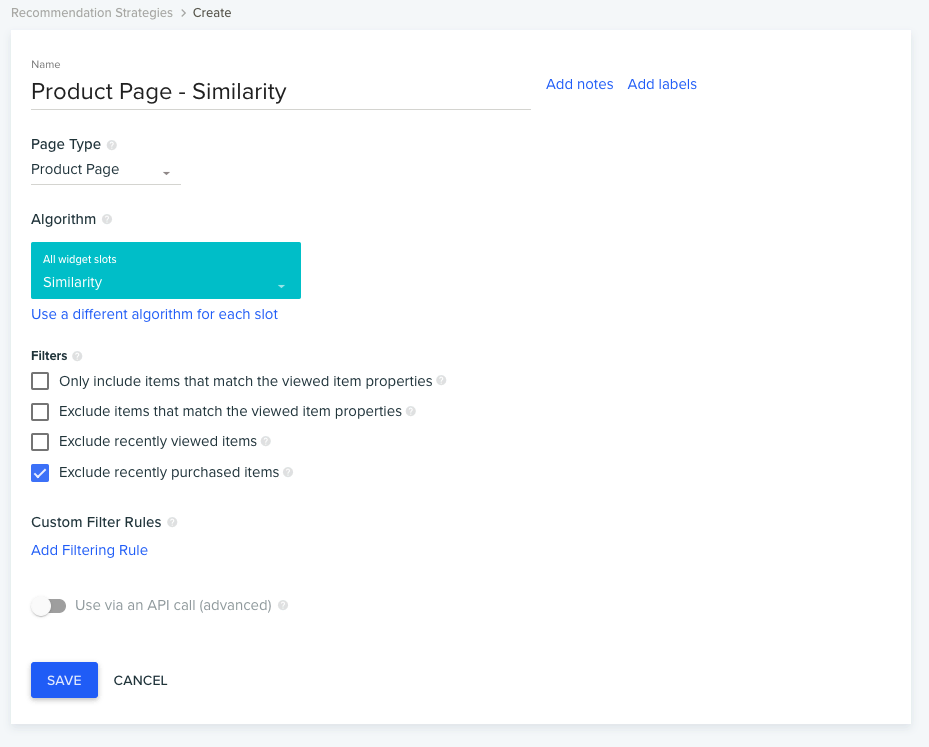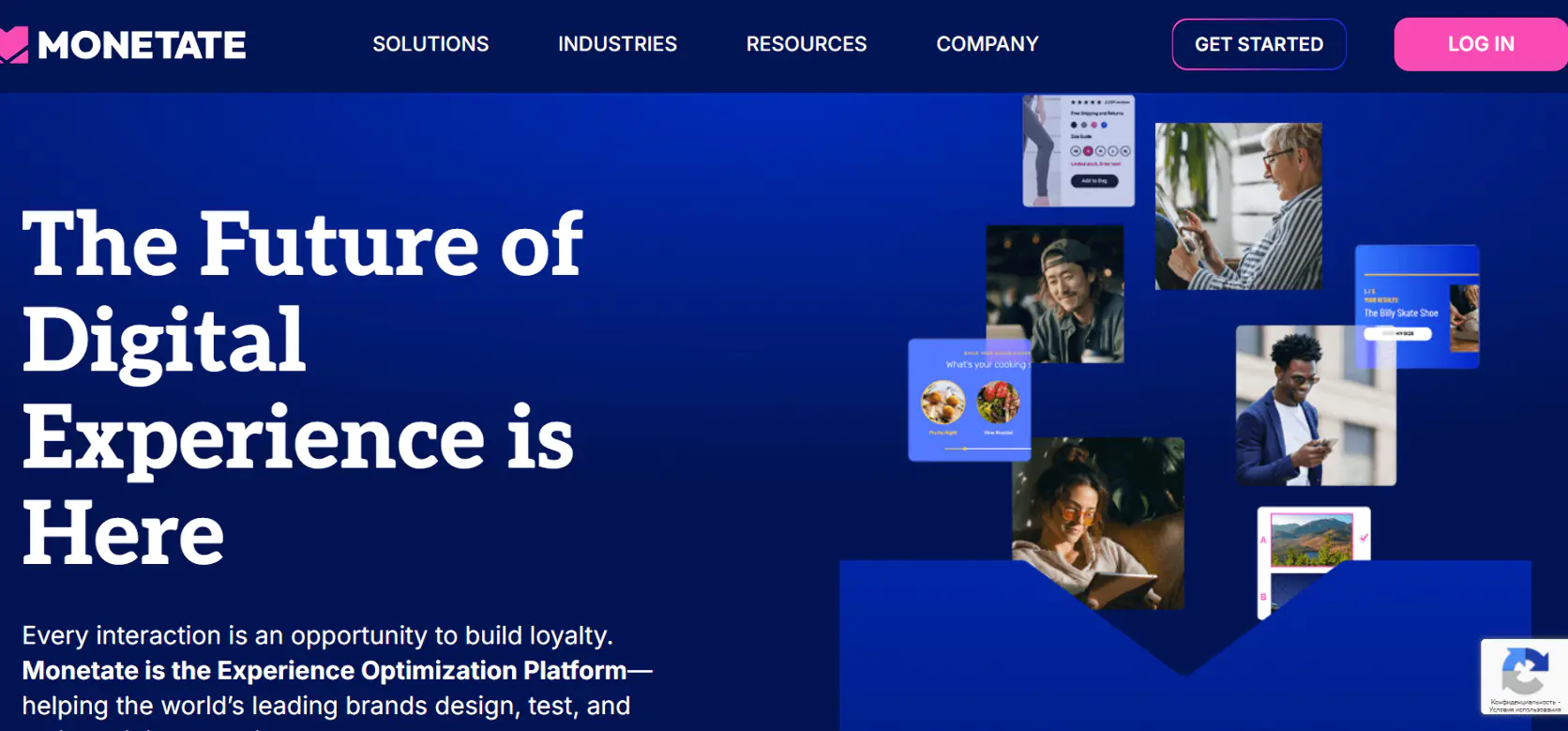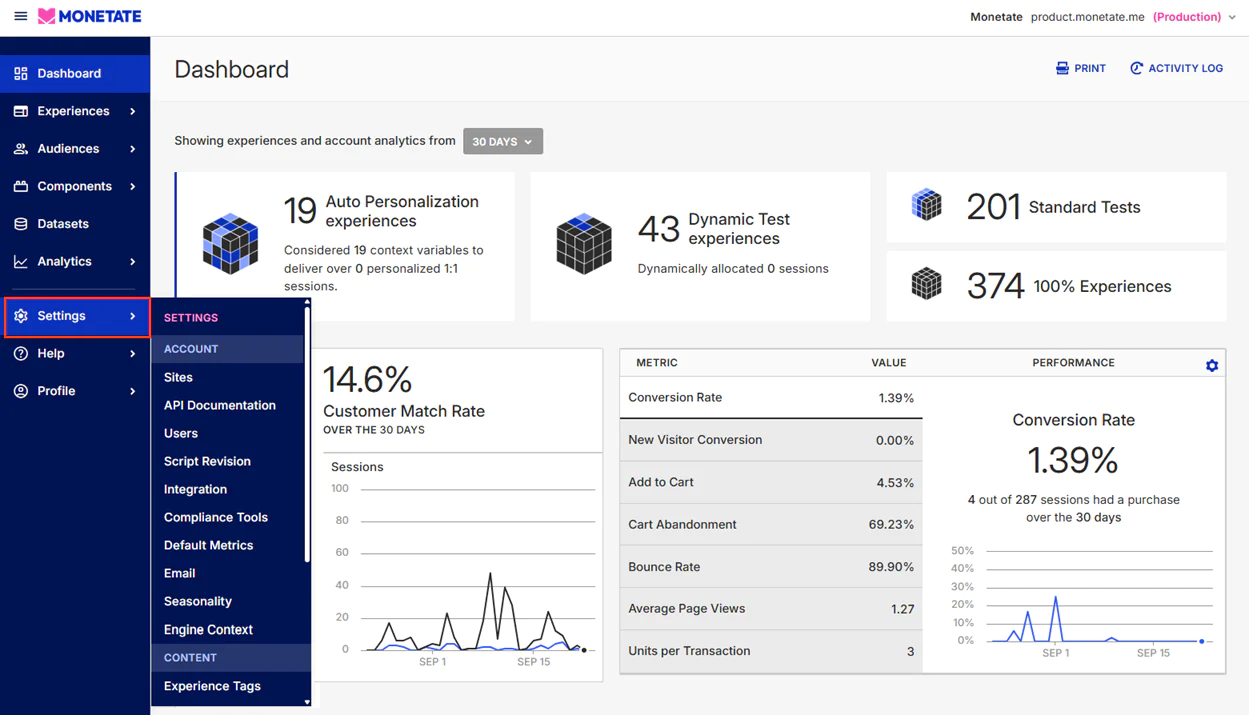9 Best Product Recommendation Engines That Boost Sales
Product recommendation engines propel sales growth substantially. Research shows that 49% of consumers buy products they never planned to after seeing customized recommendations (
2017 State of Personalization Report). This sales boost isn’t random—it represents a measurable business advantage that changes ecommerce.
Product recommendations generate up to 31% of ecommerce revenues (
Barilliance Research). Stores with customized product suggestions achieve conversion rates 4.5 times higher than others (
Salesforce Study).
Store owners need the right product recommendation tools to use these benefits effectively. This piece breaks down the 8 best product recommendation engines. You’ll learn about each platform’s features, pricing, and support options. The list starts with Maestra and covers other leading options like Rep AI, Aiden, and specialized Shopify product recommendation solutions that enhance your customer’s shopping experience.
Product Recommendation Engine Comparison
DTC brands, SMB and enterprises
$2,990/month
— No setup or onboarding fees
— Month-to-month billing, no cancellation penalties
— Transparent pricing (unlimited API calls & users)
— 14 AI algorithms for product recommendations
— Product personalization (product-picking quizzes, bundles)
— Built-in website and app personalization (pop-ups, banners, embedded blocks)
— Omnichannel campaigns (email, SMS, MMS, web and mobile push)
— CDP with up-to-the-minute processing
— Advanced filters for deep segmentation (nested segments, calculated fields)
— Built-in loyalty and referral programs
— Flexible A/B testing
— Detailed reporting with configurable attribution
White-glove service for each client as part of subscription:
— Dedicated Customer Success Manager
— Migration assistance
— Deliverability audits
— Flows and A/B tests setup
— Shared Slack or Teams channel
— Live chat (responses within 5 minutes)
— Weekly calls to discuss results and strategy
Claspo
E-commerce
Free
— No-code widget builder— Product recommendation widgets
— Advanced targeting
— Personalization
— A/B testing with analytics
— Help center
— Responsive support option
— Conversational AI
— Contextual awareness
— Behavioral intelligence
— Mobile optimization
— Email support
— Chat support
— Self-serve resources
— White-glove onboarding
— Interactive product finder
— Dynamic conversations
— Weighted scoring system
— A/B testing
— 24/7 resources
— Technical support
— Post-purchase upsells
— Multiple layouts
— Conversion Monster funnel
— Customizable offers
— 24/7 live chat
— Email support
— Video tutorials
— Knowledge base
Growth-focused businesses
— Quiz-based recommendations
— Abandonment prevention
— Dynamic product feeds
— Multi-step forms
— Live chat
— Email support
— Knowledge base
— Forum
— AI Cart Recovery
— Multiple recommendation strategies
— Web Push notifications
— Gamification
— Community network
— Help center
— Weekly coaching
— Training resources
— AdaptML™ system
— Multiple recommendation types
— Experience Search
— Cross-channel delivery
— Technical consulting
— Strategic advisory
— Dedicated manager
— Multiple channels
— Orchid AI engine
— Smart Site Search
— 1:1 Personalization
— Dynamic Testing
— 24/7 assistance
— Email/help desk
— Phone support
— Video tutorials
Maestra’s product recommendation presets
Maestra is a complete product recommendation engine built for mid-market retail brands. This all-in-one marketing automation platform helps businesses run complex omnichannel campaigns and personalized product recommendations through a single integrated tool.
Maestra’s sophisticated Customer Data Platform (CDP) collects and unifies customer data from multiple sources. The platform blends website interactions, mobile app activity, and offline store purchases to build complete customer profiles. This unified approach leads to much better product recommendations.
Maestra has these powerful recommendation engines:
Recently browsed products
Products like recently browsed items
Bestsellers (overall and by category)
Bestsellers from previously viewed categories
Post-purchase cross-sell suggestions
Personal recommendations based on full customer profiles
Event-based personal recommendations
Related products and "often purchased with" items
Similar products
Similar products to product list recommendations
If a customer has only three items totaling $82 in their cart, the upsell bar suggests adding $12 more to qualify for free shipping
Marketers can create custom recommendation rules tailored to their business needs. Maestra allows marketers to fine‑tune product matching by color, price, category, collection, or any other product attributes.
The platform goes beyond standard recommendations with advanced merchandising through its upsell features. For example, Enlightened Equipment implemented an upsell bar that showed a 38% increase in average order value by smartly encouraging customers to add items to reach free shipping thresholds.
Maestra works beyond standard recommendations. Blossom Flower Delivery added a product picking quiz to guide customers to personalized recommendations and saw a 14% increase in website conversion after using Maestra’s recommendation engine.
Results prove the platform works well. A/B testing by Enlightened Equipment revealed a 15% increase in conversion rate and 8% higher average order value compared to control groups.
Moreover, Maestra automates journeys across email, SMS, messengers, push notifications, pop-ups, in-apps, and paid media. The platform’s real-time CDP provides granular segmentation with instant updates.
Maestra offers integrated loyalty and referral programs. No third-party tools required for built-in rewards, promotions, and referral system.
Request a Maestra Demo to see how these advanced recommendation capabilities can drive results for your store.
Maestra uses a monthly subscription model without long-term commitments—a key advantage over competitors that require annual contracts. The pricing structure depends on active customer profiles. The starting price is $2,990 for up to 150,000 profiles.
Each Maestra subscription has a complete suite of features: the Customer Data Platform with immediate processing, email and SMS marketing capabilities, site and app personalization tools, product recommendation engine, price personalization capabilities, and analytics.
Unlike many competitors, Maestra doesn’t charge setup or onboarding fees.
White-glove service is central to Maestra’s offering. Each client gets complete support throughout implementation with a dedicated Customer Success Manager (CSM) who handles all integration setups. Support includes:
Data and flow migration from previous platforms
Campaign asset transfer
Third-party tool integration
Help with email, site, and feed design
Deliverability setup
Flow and segment configuration
A/B testing implementation
Support service includes a shared Slack or Teams channel, live chat with the CSM, and weekly strategy calls. The personal touch extends to strategic collaborations. Kyle Cannon, Digital Marketing Manager at Furniture Fair noted, "Instead of the usual monthly check-in and upsell, the collaboration is constant, communication is immediate, and the team is truly invested in our success".
Complete marketing platform with CDP, recommendations, and personalization
Substantial monthly investment starting at $2,990
Immediate product events like price drops and low stock alerts
Built for mid-market retailers with at least 10,000 contacts
No long-term contracts or setup fees
May offer more capabilities than smaller businesses need
Dedicated Customer Success Manager for each client
Limited self-service options compared to some competitors
Native loyalty, referral, and promotion engines without external add-ons
Advanced segmentation capabilities beyond simple recommendation tools
Maestra works best for ecommerce businesses looking to unite their marketing efforts across channels. Swimwear brand JOLYN achieved a 26% increase in campaign-driven revenue after switching to Maestra from Klaviyo.
Claspo is an on-site conversion platform that helps ecommerce teams lift conversions at key decision moments by delivering personalized on-site experiences—like product recommendation widgets, product sliders, targeted offers, and lead capture flows. Instead of relying on static blocks, marketers can deploy conversion-focused widgets that react to real-time intent (exit intent, scroll depth, time on page) and keep optimizing performance without developer support.
Claspo combines no-code execution, CRO-ready templates, and advanced targeting in one lightweight conversion layer. Key capabilities include:
No-code widget builder: Launch popups, slide-ins, sticky bars, embedded blocks, and floating widgets for offers and lead capture.
Product recommendation widgets: Promote relevant products with product recommendation blocks and product sliders to drive clicks and purchases.
Advanced targeting & triggers: Show the right message based on exit intent, scroll depth, time on page, traffic source, device, and on-site behavior.
Smart personalization: Tailor offers and product prompts using page context and audience segments so experiences feel relevant—not intrusive.
A/B testing & analytics: Test widget design, copy, and triggers to continuously improve conversion rates.
Integrations & webhooks: Sync captured data to your ESP/CRM and automation tools to trigger follow-up workflows.
Claspo offers a free plan to get started, with paid plans that scale by monthly pageviews (with higher limits and unbranded options on premium tiers).
Claspo provides onboarding resources, a help center with step-by-step guides, and responsive support options to help teams launch and optimize campaigns efficiently.
No-code setup with strong targeting and trigger logic
Best as an on-site conversion layer; not a standalone enterprise recommendation “engine” for deep algorithmic modeling
CRO-ready templates for faster launch
Design flexibility can depend on the chosen template structure
Built-in A/B testing for conversion optimization
Useful for ecommerce promos, opt-ins, and product-focused on-site messaging
Rep AI is a conversational product recommendation engine that connects with shoppers through natural dialogue. This AI-powered chatbot provides human-like, on-brand support 24/7 and guides customers to find products in an organic way rather than a mechanical one.
Rep AI makes product discovery easier through an intelligent chat interface that performs exceptionally well on mobile devices, unlike traditional recommendation boxes buried on product pages. The system’s contextual awareness is its strongest feature—it suggests products based on:
Current cart contents
Previously visited pages
Live conversation context
The AI gets better through machine learning with each customer interaction. Store owners can customize their chatbot’s personality, tone, and interaction style to match their brand identity perfectly. This creates a unified experience across all customer touchpoints.
Rep AI conversations review
The system’s behavioral intelligence checks shopper activity every five seconds. It looks for signs that visitors might leave by monitoring scroll depth, mouse clicks, and inactivity patterns. The system starts a conversation to keep them interested when it spots someone likely to leave—this approach has helped some merchants triple their conversion rates.
Rep AI’s pricing starts at $12 for up to 3,000 visitors per month. Every plan includes access to the same advanced AI capabilities—the main differences are visitor volumes and catalog size rather than feature restrictions.
Rep AI’s support options vary by plan:
Email support for all customers
Chat support for higher-tier plans
Self-serve resources through a detailed help site
White-glove customer success onboarding for plans above Pro level
The company offers a 30-day free trial.
Native Shopify integration
Success depends on product information quality
Individual-specific recommendations through natural conversation
Needs setup time to match brand voice and policies
24/7 availability without extra staffing costs
Works well 99% of the time but may occasionally “hallucinate”
Gets smarter through machine learning
Users want more Shopify ecosystem integrations
Mobile-friendly user experience
Fewer support tickets by handling common pre-sale questions
Case studies show Rep AI’s value: Kinn Studios, a luxury jewelry brand, saw 16% higher average order value with AI-assisted sales, which proves the system can improve shopping experiences through smart conversation.
Aiden stands out as Europe’s leading guided selling software for ecommerce. The software recreates the in-store sales experience for online shoppers. This product recommendation engine takes a fresh approach by asking customers about their needs directly instead of just watching their browsing behavior to make suggestions.
Aiden works as an interactive product finder that helps hesitant customers through thoughtful questions. The platform analyzes responses to create tailored product recommendations based on what customers actually want. This approach is different from traditional recommendation tools that try to guess customer interests through passive tracking.
Key capabilities include:
AI-powered setup and refinement of product finders
Dynamic conversation flows tailored to different customer types
Nuanced recommendations using weighted product scores
Flexible display options (sidebar, pop-up, in-page, or full page)
A/B testing functionality to optimize performance
Complete integration options with ecommerce platforms
Aiden brings together filters with weighted scoring systems to give the most suitable product recommendations. The platform smoothly combines with popular ecommerce systems like Shopify, WooCommerce, and Magento. It also connects with analytics tools like Google Analytics and customer data platforms such as Squeezely and Bloomreach.
The platform offers flexible, usage-based rates. Businesses can get custom pricing by reaching out to Aiden’s sales team.
Aiden helps customers throughout the implementation process. Their support portal gives customers one place to find help with all Aiden products and services. Support options include customer support for technical issues, 24/7 access to troubleshooting guides and resources.
The company helps customers quickly set up and improve their product finders. They guide users on connecting with various platforms and making recommendations more accurate.
Creates familiar shopping experiences online by copying in-store sales conversations
Small businesses might find the pricing tough
Gets valuable zero-party data straight from customers
Free versions are hard to find (though free trials exist)
Makes detailed product recommendations based on what customers say they want
Newer than some competing recommendation solutions
Works with major e-commerce platforms and analytics tools
Focuses mainly on European markets
Reduces choice paralysis and abandonment
Online shopping keeps changing. Aiden stands out by scaling real retail expertise instead of using generic AI recommendations.
Upsell helps online stores increase revenue with post‑purchase upsells and cross‑sells. This Shopify-specialized app changes standard thank-you pages into powerful sales opportunities.
Upsell’s Product Recommendations Widget serves as its flagship feature. Merchants can display either dynamic or static recommended products on customer thank-you pages. This versatile tool comes with several presentation options:
Multiple layout choices including Grid, Slider, and List formats
Customizable offer titles and widget positioning
Eight product selection methods with exclusion tag capabilities
Flexible discount options (percentage, fixed amount per unit, or fixed amount per order)
Optional countdown timers that create urgency
Upsell lets merchants copy, apply, and extend sophisticated upselling strategies through its "Conversion Monster" funnel. The system creates a branded post-purchase product recommendation sequence based on merchant-defined maximum discount parameters. The platform’s segmentation capabilities boost targeting precision. Merchants can tailor offers based on customer attributes and behaviors.
Widget customization with Upsell
Upsell uses a flexible pricing structure with a 14-day free trial period for new users. The billing follows a pay-as-you-grow model based on whichever amount is higher:
Total store orders in the last 30 days OR
Revenue generated through Upsell
The Upsell Growth plan costs $4.99 per month for up to 50 orders or $50 in upsell revenue. The subscription cost adjusts as order volumes or Upsell-generated revenue increases. All plans offer the same complete feature set—differences only relate to usage volumes rather than functionality limitations.
Users get 24/7 live chat support with all subscription levels. This gives merchants immediate help whenever problems arise. Support resources include:
Complete knowledge base and help documentation
Video tutorials via their YouTube channel
Upsell’s support team receives praise in many merchant reviews. One October 2025 reviewer noted: "Customer service was excellent… Super happy with this app". Another highlighted individual-specific experiences: "Ashley from Upsell really helped me understand the app and get things set up".
Smooth Shopify integration with easy setup (typically under 10 minutes)
Larger stores might find it expensive due to the percentage-based fee structure
Complete post-purchase optimization tools beyond just recommendations
Limited support for custom products
One-click upsells that don’t require customers to re-enter payment details
Post-purchase pages sometimes load slowly
A/B testing capabilities to optimize conversion rates
User interface can be difficult to navigate
Customizable thank-you pages with additional elements like videos and surveys
Limited multi-language support
Flexible pricing that grows with business performance
Online stores constantly look for ways to maximize customer lifetime value. Upsell offers a specialized solution that targets the often-overlooked post-purchase moment. The platform shows substantial revenue potential for Shopify merchants with its focus on frictionless upselling.
ConvertFlow provides an all-in-one platform that enables marketers to create personalized product recommendations without needing extensive development resources. The platform integrates smoothly with ecommerce systems to deliver targeted product suggestions through multiple customer touchpoints.
ConvertFlow stands out by taking a flexible approach to product recommendations. Merchants can display relevant products in different formats:
Quiz-based recommendations — Segment shoppers through interactive quizzes that guide them to suitable products based on their responses
Abandonment prevention tools — Detect exit intent and bring back visitors with personalized product offers
Upsell and cross-sell capabilities — Boost cart value by showing complementary products
Dynamic product feeds — Customize product displays for each visitor based on their behavior
The platform goes beyond typical recommendation boxes. Businesses can add product suggestions to popups, landing pages, sticky bars, and site messages.
ConvertFlow’s multi-step forms help create a conversational approach to product discovery. A merchant noted, "With ConvertFlow, we can change what new leads see after filling out the form based on the answers they gave us. It’s like a chatbot, minus the annoying parts".
ConvertFlow’s product recommendation filter
ConvertFlow Pricing Plans
The platform uses a traffic-based pricing model that grows with your business:
Pro Plan: $299 per month for up to 30,000 monthly funnel views
Plus Plan: $599 per month for up to 100,000 monthly funnel views
ConvertFlow counts only funnel views instead of charging for all website traffic. The dashboard tracks and displays funnel views each time someone views a ConvertFlow funnel.
Subscribers get several support options:
Live chat assistance with quick-responding representatives
Email/help desk ticketing
Complete knowledge base
FAQs and forum resources
Users often praise the quality of customer service. According to testimonials, "The customer support is great, and the dev team is very fast at finding solutions to technical issues". Another user shared, "The customer service has been top-notch. I needed a quality solution that was easy to integrate and execute".
ConvertFlow Pros and Cons
Highly customizable platform with +20 layout options
Learning curve needs time investment
Built-in A/B testing capabilities to optimize conversion
Higher pricing compared to single-feature alternatives
Smooth integration with major e-commerce platforms and CRMs
Occasional server performance issues
No-code builder available to non-technical marketers
Some users report limited integrations
Knowing how to personalize based on visitor behavior and segmentation
Can get pricey for smaller businesses
ConvertFlow works as a complete conversion optimization platform. A merchant summed it up: "ConvertFlow has probably doubled our lead generation… it has had a big effect on our lead generation".
Wisepops enhances online engagement with customizable popups, embeds, and AI-driven product recommendations. This conversion rate optimization toolkit helps online stores increase their sales through individual-specific shopper interactions.
Wisepops offers a complete suite of conversion tools built around its AI product recommendation engine. The platform analyzes billions of behavior data points through collaborative filtering to suggest products that visitors want to buy. The platform includes:
AI Cart Recovery that detects the right moment to reach out to visitors
Product recommendations using six different strategies (Best Sellers, Trending Now, Frequently Viewed Together, etc.)
Pop‑ups, bars, and embeds that show personalized content
Web Push notifications that re-engage users without competing for inbox space
Gamification elements that get 3× more emails
Feed notifications that highlight products throughout the shopping experience
The platform also provides A/B testing tools and advanced analytics to monitor customer paths, revenue attribution, and conversion routes.
Wisepops popup builder with an AI product recommendations campaign
The Essential plan costs $49 per month. Monthly pageview pricing breaks down as:
50,000 pageviews: $49 per month
100,000 pageviews: $99 per month
250,000 pageviews: $179 per month
500,000 pageviews: $249 per month
Users get full access to all features with a 14-day free trial. The platform’s transparent pricing scales with business growth. Campaigns pause automatically if traffic exceeds plan limits until users upgrade or enable Extra Pageviews.
New users receive access to:
A private community network for sharing knowledge
A complete help center with tutorials
Weekly coaching sessions with Wisepops experts
Support includes email/help desk, knowledge base, FAQs/forum, and training through documentation, live online sessions, webinars, and videos.
Easy-to-use interface that needs no coding knowledge
Images sometimes scale poorly on different screen sizes
Strong targeting options by URL string
Mobile versions can be tricky to develop
Fast setup with Shopify integration
Some users want Google Ads connection to track leads
Rich features with advanced customization options
Basic plans have limited GA integration
AI recommendation engine that uses multiple data signals
Popup timing and display need occasional adjustments
Stores that use Wisepops effectively see up to 10% revenue increase through its recommendation engine. This makes it a powerful tool for boosting ecommerce conversions.
Dynamic Yield by Mastercard helps create personalized shopping experiences through its advanced Experience OS platform. The AI-driven product recommendation engine creates lasting impressions by matching content, products, and offers to each customer’s priorities across digital channels.
Dynamic Yield’s self-training deep learning system, AdaptML™, sits at its core. The system analyzes user behavior to predict products visitors might like. The platform offers several recommendation strategies:
Empathic recommendations that adjust based on user mindset and where they are in their shopping experience
Keyword similarity suggestions for contextually relevant products
VisualML to identify visually similar items
"Viewed Together" and "Purchased Together" algorithms
User Affinity that personalizes based on individual priorities
The platform launched Experience Search, which combines AI with proprietary personalization to better match shopper intent with search results. Dynamic Yield delivers consistent experiences across web, apps, and emails without needing extensive development resources.
Dynamic Yield’s recommendation presets
Dynamic Yield Pricing Plans
The platform uses a quote-based enterprise model. Pricing typically scales based on:
Monthly traffic volumes
Enabled channels (web, app, email)
Delivery method (client-side, server-side, or Edge)
Public reviews show that contracts usually include minimum annual commitments. Additional fees may apply for advanced modules and higher request volumes. The company creates customized solutions for each client instead of publishing standard pricing packages.
Support is the lifeblood of Dynamic Yield’s service approach. Customers get:
Technical consulting and strategic advisory services
On-site business reviews and in-depth training sessions
A 10-day accelerated onboarding plan to deliver quick results
Multiple support channels including phone, live chat, email, forum/community, FAQ/knowledgebase, and video tutorials
Each client works with a dedicated project manager who provides guidance throughout implementation and optimization.
Dynamic Yield Pros and Cons
Some users report integration issues
Complete recommendation strategies with algorithmic fusion capabilities
Client-side setups can slow performance
Flexible merchandising rules that don’t need technical expertise
Implementation takes considerable time
Merchandising that updates automatically based on immediate factors
Limited analytics capabilities
Powerful personalization API for customized implementations
Original data layer and feed setup needs substantial effort
Big brands like Sephora and Lamoda use Dynamic Yield to boost their customer experiences with intelligent product recommendations.
Monetate improves ecommerce customer experiences through AI-powered personalization. The platform helps merchandising, marketing, and technical teams create influential experiences.
The platform’s Orchid AI engine has become the foundation of its recommendation capabilities. It unifies search, navigation, and personalization to create seamless customer experiences. This intelligent system has:
Smart Site Search: Results adapt based on immediate intent and deliver higher search revenue
Intelligent Recommendations: Product suggestions across web, mobile, app, and kiosk channels
1:1 Personalization: Individual-specific experiences boost conversion rates
Dynamic Testing: Traffic automatically goes to winning variants without statistical significance delays
The platform creates advanced recommendation strategies with PID (Product ID) and SKU-level data from product catalogs. This allows product suggestions based on attributes like size, color, and category.
Analytics of a Monetate account
Monetate follows a custom pricing model without public rates. User reviews suggest the platform needs substantial investment, making it suitable for larger businesses with high traffic volumes. Reviews describe it as "not cheap" yet "affordable" given its complete capabilities. Prices vary based on implementation scope and features needed.
Support stands as a core service component. The support team handles platform features and implementation problems. Support options include:
Email/help desk assistance
Phone support
FAQ/knowledgebase resources
Video tutorials and webinars
24/7 live representative assistance
Simple test setup process
Many users find it overpriced compared to alternatives
Strong testing options for creative and promotional messaging
Multi-language support lacks French options, causing problems for Canadian websites
Website content updates without IT help
Backend systems feel outdated and confusing at times
Premium support at no extra cost
Some users report inconsistent recommendation strategies
The key is matching your recommendation engine to your current business size, technical resources, and growth trajectory. Start with simpler solutions and upgrade as your needs become more sophisticate
Conversational AI outperforms static recommendations: Platforms using natural dialog and contextual awareness see higher conversion rates than traditional recommendation boxes
Integration complexity varies significantly: Shopify-native solutions offer quick setup, while enterprise platforms like Dynamic Yield require substantial technical implementation but deliver cross-channel consistency
Pricing models impact long-term costs: Traffic-based pricing can become expensive as you scale, while flat-rate subscriptions provide predictable growth costs for expanding businesse
Q1. How do product recommendation engines impact e-commerce sales?
Product recommendation engines can significantly boost ecommerce sales, accounting for up to 31% of total revenues. They can lead to conversion rates 4.5 times higher than stores without personalized recommendations.
Q2. What are some key features to look for in a product recommendation engine?
Important features include AI-powered personalization, multiple recommendation strategies (e.g., bestsellers, recently viewed, frequently bought together), cross-channel consistency, A/B testing capabilities, and integration with major ecommerce platforms.
Q3. How do pricing models differ among product recommendation tools?
Pricing models vary widely, from affordable options for smaller businesses to enterprise-level solutions with custom pricing. Some tools use traffic-based pricing that scales with business growth, while others offer flat-rate subscriptions with different feature tiers.
Q4. What role does AI play in modern product recommendation engines?
AI is crucial in modern recommendation engines, enabling features like natural language processing for conversational recommendations, machine learning for continual optimization, and predictive analytics to anticipate customer preferences and behaviors.
Q5. How can businesses choose the right product recommendation engine for their needs?
Businesses should consider factors such as their size, technical resources, budget, and specific needs (e.g., post-purchase recommendations, multi-channel consistency). It’s often advisable to start with simpler solutions and upgrade as the business grows and needs become more sophisticated.
